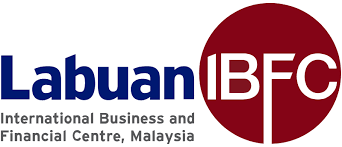
A risk management solution that offers infinite growth over time
Located off the Bornean coast in Malaysia, Labuan International Business and Financial Centre (Labuan IBFC) has emerged as a significant player in the global captive insurance industry.
Over the past three decades, Labuan IBFC developed a robust framework to attract captive insurance entities, contributing to its growth as Asia’s premier international financial hub for risk management solutions. Labuan IBFC remains an attractive financial intermediation hub with more than 800 licensed financial institutions operating currently.
Early beginnings and establishment of regulatory frameworks
Captive insurance was first introduced in Labuan IBFC in the early 1990s. Recognising the potential of captive insurance as a tool for risk management, the regulator, Labuan Financial Services Authority (Labuan FSA) introduced incentives to attract global businesses. The early days saw the establishment of a few captive insurance businesses, primarily from Asia, seeking a favourable regulatory environment and cost-effective solutions.
This was followed by introduction of Labuan IBFC’s regulatory framework which has been a cornerstone of its success in attracting captive insurance entities.
Likewise, the introduction of the Labuan Financial Services and Securities Act (LFSSA) in 2010 marked a significant milestone, providing a comprehensive legal framework for captive insurance activities including the introduction of the protected cell company structure.
This act lays down clear guidelines for the establishment, operation, and supervision of captive insurance businesses.
Collaboration between jurisdiction and key stakeholders
The jurisdiction’s central location in Southeast Asia, and its proximity to major markets such as China and Japan, designates Labuan IBFC as the ideal hub for regional and multinational businesses seeking efficient risk management solutions.
The jurisdiction’s flexible, business-friendly regulatory framework meets international standards and best practices, such as those set by the International Association of Insurance Supervisors (IAIS).
This streamlined reporting, coupled with features such as a risk-based regulatory approach low capital requirements and attractive and competitive tax incentives has led to a steady increase in the number of captive insurance businesses in Labuan.
This also grants convenient business flexibility and secures confidence for business owners to establish Labuan captive setups.
Furthermore, collaborating with industry associations such as the Labuan International Insurance Association (LIIA), the largest industry grouping comprising more than 200 insurance companies, as well as insurance and underwriting managers service providers and Labuan Trust Companies (LTCs) helps captive insurance businesses navigate the regulatory landscape and creates a supportive ecosystem.
These partnerships facilitate knowledge sharing, professional development, and the adoption of best practices.
Headline numbers and accolades
Labuan IBFC offers various types of captives, including pure captives, group/association captives, multiple captives, master rent-a-captives, and protected cell companies (PCCs) catering to diverse business needs.
The Labuan captive segment has been riding on an outstanding growth track by capturing Asia’s growing demand for a cost-efficient, alternative risk management solution. This is evident from the 9.4% growth in captive premiums since 2019.
As the region’s fastest-growing captive hub, as of 2023, it is home to 69 captives, and the segment has recorded a total premium volume of USD626.6 million, comprising more than 30% of the overall Labuan insurance industry’s premiums.
For a jurisdiction that began its self-insurance journey leveraging on self-insuring the risk of Malaysian-based corporates, the fact that most captive premiums now originate from overseas markets underscores how Labuan IBFC has become the hub of choice for captives. Accolades garnered by Labuan IBFC as a testament to this include:
• the Highly Commended International Domicile award at the European Captive Review Awards 2022 and 2023,
• the Best Asian Domicile award at the Asia Captive Review Awards 2021, and
• the Top International Captive Domicile award at the European Captive Review Awards 2021.
Staying ahead of the curve
A significant milestone in terms of innovation for the Labuan captive industry is Labuan FSA’s issuance of the revised Guidelines on Captive Insurance Business, which was effective 1 January 2024.
The revised guidelines included provisions for the expansion of insurable risks of Labuan captives to include indirect insurable interest risks. Significantly, there was also the introduction of a new rental captive structure – External Rent-A-Captive.
The revision also included new structures for rental captives and streamlined procedures for the establishment of new cells under PCCs.
ACC 2024 – The captive event of the year
Labuan IBFC’s highly anticipated flagship event, the Asian Captive Conference (ACC) will be returning for its seventh year on 19th September 2024, at Sime Darby Convention Centre.
The ACC 2024 is expected to deliver an even more insightful conference taking into account the evolving needs of the APAC region’s captive segment with this year’s curated theme Asian Anchors: Leading the way in captive innovation.
The theme addresses the evolving needs of the captive insurance industry in the APAC region by promoting technological advancement, regulatory adaptation, risk diversification, market growth, sustainability, and customer-centric approaches.
By focusing on these areas, the conference aims to equip industry professionals with the knowledge and tools necessary to navigate the dynamic landscape and drive growth and innovation in the region.
The way ahead
Labuan IBFC has continued to innovate and adapt to the evolving needs of the captive insurance market. The introduction of digital insurance and insurtech solutions have opened new avenues for captive insurance businesses, enabling them to leverage technology for enhanced efficiency and customer experience.
Additionally, Labuan IBFC as an international business and financial centre has strengthened its focus on Environmental, Social, and Governance (ESG) principles. This focused has also spilled over into the jurisdiction’s captive segment, whereby key players are increasingly adopting ESG practices, thus aligning their operations with global sustainability goals.

